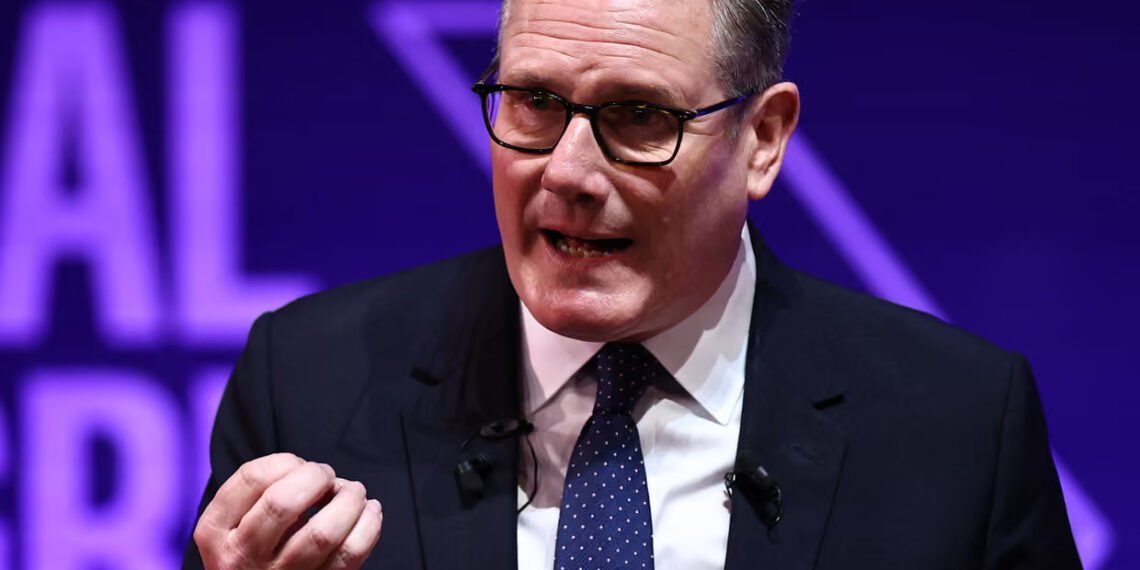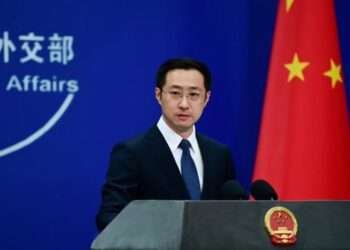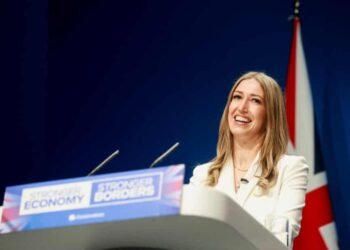UK Prime Minister Keir Starmer told delegates at the Global Progress Action summit in London that progressive leaders must confront the “lies” fueling populism and dismantle what he described as an “industrialised infrastructure of grievance.”
His address carried sharp undertones aimed at President Donald Trump, whose rhetoric, he argued, misrepresents cities like London.
In the speech, Starmer also outlined his plan for mandatory ID cards, linking the policy directly to migration and border control. He emphasized that progressives could no longer shy away from tackling distortions that have taken root across democracies.
Starmer insisted that portraying London as a decaying and unsafe city, a view repeatedly expressed by President Trump, was detached from reality. Addressing the audience, which included Canadian Prime Minister Mark Carney and Australian Prime Minister Anthony Albanese, he said progressives had to push back against false narratives while also acknowledging that some of Trump’s policies, such as tariffs, had become part of the global economic framework.
“You can have your own view on tariffs … The fact is, they’re here. President Trump believes in them, uses them, and we have to understand that. It’s a profound belief that he has about the way he wants his economy to be reshaped.”
Prime Minister Keir Starmer

Starmer Counters Populist Claims At Summit
Starmer sought to reassure his audience that progressive politics was not “dying out,” despite narratives suggesting otherwise. He pointed to recent election victories across different nations as proof that center-left parties remain relevant.
“But I do accept that it is now time for social democrats to confront directly some of the challenges and some of the lies, frankly, that have taken root in our societies,” he said. He stressed that distortions are not limited to politics but also extend to how nations and communities are portrayed.
He lightened the mood with a jab at Trump’s depiction of London, saying delegates attending the summit “may have noticed that this city isn’t the wasteland of anarchy that some would have you believe.”
President Trump, speaking earlier at the UN General Assembly, had painted London as lawless under Mayor Sadiq Khan, even suggesting without evidence that Khan sought to impose sharia law. Starmer countered that such remarks exemplified the broader challenge: narratives that are “miserable, joyless and demonstrably untrue.”
The prime minister warned of the dangers of such divisive rhetoric, citing the “most poisonous” manifestation in a recent far-right protest in London. He condemned the demonstration as an attempt to provoke a “violent struggle for the nation.”
“You don’t have to be a great historian to know where that kind of poison ends up,” he cautioned.
Starmer has faced criticism for being slow to respond to both the far-right rally and the rise of Reform UK, which has advocated mass deportations, even for people with permanent residency rights. In reply, he has positioned himself as the architect of a “patriotic renewal,” focused on delivering meaningful outcomes for voters rather than simply defending existing systems.
Carney, speaking on the same panel, underscored the urgency of addressing stagnant wage growth.
“The last time that happened was the middle of the 19th century – Karl Marx was writing the Communist Manifesto. There’s a connection. So you’ve got to deliver real wage growth, first and foremost. The simple fact is that every nation needs to have control over its borders. We do need to know who is in our country … You will not be able to work in the United Kingdom if you do not have digital ID. It’s as simple as that.”
Prime Minister Mark Carney
As such, Starmer had drawn a clear line between progressive ideals and populist narratives, arguing that truth, accountability, and delivery must remain central to governance in an era dominated by political polarization.
READ ALSO: Former FBI Director James Comey Indicted























